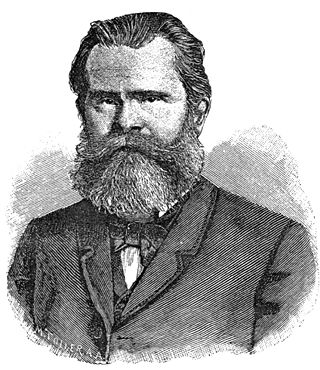
Otto Staudinger was a German entomologist and a natural history dealer considered one of the largest in the world specialising in the collection and sale of insects to museums, scientific institutions, and individuals.

Melitaea diamina, the false heath fritillary, is a butterfly of the family Nymphalidae.
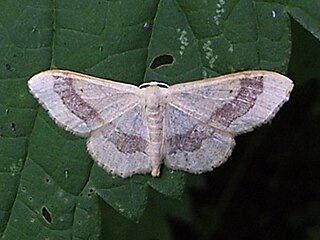
Idaea, sometimes called Hyriogona, is a large genus of geometer moths. It was erected by Georg Friedrich Treitschke in 1825. They are found nearly worldwide, with many native to the Mediterranean, the African savannas, and the deserts of western Asia.

Aplocera is a genus of moths of the family Geometridae.
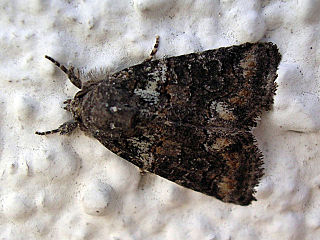
Bryophila is a genus of moths of the family Noctuidae. The genus was described by Treitschke in 1825.

Dichagyris is a genus of moths of the family Noctuidae. The former genera Loxagrotis, Pseudorichia, Pseudorthosia and Mesembragrotis are now considered subgenera of Dichagyris. From Greek dikha-gyris 'apart, asunder; double' + 'the finest meal or flour'; English pronunciation: /digh-kuh-JIGH-riss/, IPA [dɑj•kə'dʒɑj•ɹɪs].
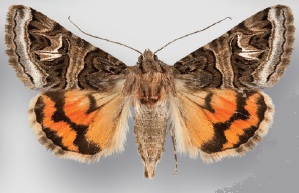
Drasteria is a genus of moths in the family Erebidae.

Pseudohermonassa is a genus of moths of the family Noctuidae. Some species were formerly placed in Xestia.

Asthena is a genus of moths in the family Geometridae.
Celonoptera is a monotypic moth genus in the family Geometridae. Its only species, Celonoptera mirificaria, is found in south-eastern Europe. Both the genus and species were first described by Julius Lederer in 1862.
Dasypteroma is a monotypic moth genus in the family Geometridae. Its only species, Dasypteroma thaumasia, is found in Spain. Both the genus and species were first described by Otto Staudinger in 1892.

Entephria is a genus in the geometer moth family (Geometridae). There is no unambiguous common name for these moths; like many other members of their subfamily Larentiinae, they are sometimes called "carpets". The genus was erected by Jacob Hübner in 1825.

Gnopharmia is a genus of moths in the family Geometridae.
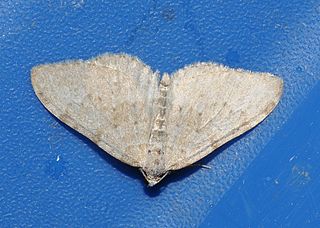
Nebula is a genus of moths in the family Geometridae erected by Charles Théophile Bruand d'Uzelle in 1846.

Rhodostrophia is a genus of moths in the family Geometridae erected by Jacob Hübner in 1823.

Sterrhinae is a large subfamily of geometer moths with some 3,000 described species, with more than half belonging to the taxonomically difficult, very diverse genera, Idaea and Scopula. This subfamily was described by Edward Meyrick in 1892. They are the most diverse in the tropics with the number of species decreasing with increasing latitude and elevation.

Scopulini is a tribe of the geometer moth family (Geometridae), with about 900 species in seven genera. The tribe was described by Philogène Auguste Joseph Duponchel in 1845.

Muschampia is a Palearctic genus of spread-winged skippers in the family Hesperiidae.

Eupithecia actaeata is a Eurasian species of moth of the family Geometridae.
Gnophini is a tribe of moths.

















